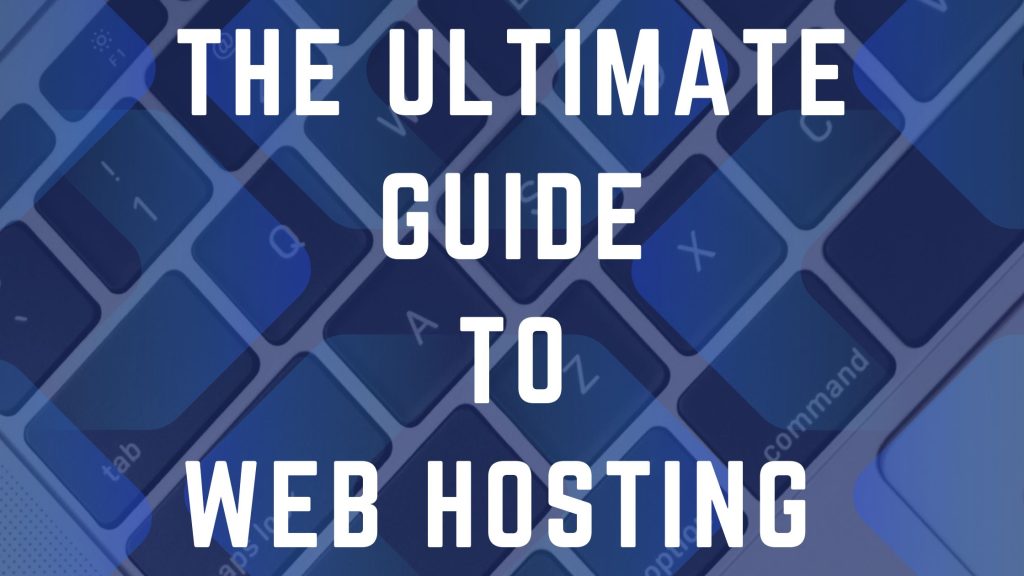WHAT YOU NEED TO KNOW:
What makes a website great is a combination of designs, content, and features. However, without web hosting, no one could access your site.
For many website owners, hosting is a bit of an enigma. With countless plans and providers available, figuring out where to begin can be quite challenging.
To help illustrate hosting and guide you to the best option for your next project, we’ve created the ultimate guide. Spend a few minutes with us, and you’ll gain a wealth of knowledge!
Choosing the right web hosting service is crucial for the success of your website. Whether you’re a beginner or looking to switch providers, understanding the essentials can make a significant difference.
WHAT IS WEB HOSTING?
Every website is stored on a server. That server makes the website available to users on the web. Web hosting is the service of storing (aka hosting) a website on a server.
TYPES OF WEB HOSTING
1. Shared Hosting:
Ideal for beginners and small websites, shared hosting is cost-effective. Your site shares server resources with other websites, which can affect performance during high traffic periods.
At Cupisweb, our shared hosting plans provide excellent value, starting and include free domain registration.
Advantages of Shared Hosting:
- Affordable plans, often under $5 per month.
- Great performance for small to medium-sized business websites, depending on your provider.
Disadvantages of Shared Hosting:
- May not handle high-traffic websites well.
- The best rates often require a multi-year commitment.
IDEAL FOR:
- Beginners will find shared hosting to be an ideal choice. The right provider offers essential tools to kickstart your project and the flexibility to scale as your needs grow.
2. VPS Hosting (Virtual Private Server):
Virtual Private Server (VPS) hosting provides more control and better performance than shared hosting. It’s suitable for growing websites needing more resources.
At Cupisweb, we provide four levels of VPS hosting, each available with monthly, annual, and triennial plans.
Advantages of VPS Hosting:
- Your website receives fully dedicated resources.
- Depending on your hosting provider, you may be able to tailor your VPS to meet your specific requirements.
Disadvantages of VPS Hosting:
- Estimating the necessary resources can be difficult.
- Setting up a VPS often requires technical expertise.
IDEAL FOR:
- VPS hosting is ideal if you desire complete control over your server without the high cost of a dedicated plan. Its extensive customizability is also a significant benefit.
3. Dedicated Hosting:
This offers the highest level of server resources and control, making it perfect for large websites with high traffic. It’s the most expensive option but provides superior performance.
Advantages of Dedicated Hosting:
- Exclusive use of the entire server.
- Generally customizable to meet specific requirements.
- Unlimited bandwidth for DreamHost users.
Disadvantages of Dedicated Hosting:
- Higher cost compared to other hosting options.
IDEAL FOR:
- Perfect for websites demanding top-tier performance and with the financial resources to support it.
4. Cloud Hosting:
Cloud hosting uses multiple servers to ensure high uptime and scalability. It’s great for websites with fluctuating traffic, as resources can be adjusted easily.
The benefit of this setup is its flexibility in scaling your server’s resources as required. Additionally, with its built-in redundancy, concerns about downtime and data loss are minimized.
Cloud hosting can range from very affordable to extremely costly, depending on how you configure your server. This type of setup is utilized by large internet-based companies for their operations. However, unless your website operates on the scale of Netflix, this may not be necessary for you.
Advantages of Cloud Hosting:
- It provides a high level of scalability.
- You have the freedom to customize your server as needed.
Disadvantages of Cloud Hosting:
- The payment structures can be complex.
- It may not be suitable for those without experience in server configuration.
IDEAL FOR:
- Individuals who enjoy tweaking their server’s settings and require a high degree of scalability should consider cloud hosting.
KEY FEATURES TO CONSIDER:
-
Bandwidth and Storage:
Ensure the hosting plan offers sufficient bandwidth and storage to handle your website’s traffic and content needs.
-
Uptime Guarantee:
Look for hosts with a high uptime guarantee (99.9% or higher) to ensure your website is available to visitors most of the time.
-
Customer Support:
Reliable customer support is essential, especially if you’re new to web hosting. 24/7 support via multiple channels (live chat, phone, email) is beneficial.
-
Security Features:
Ensure the hosting provider offers robust security features such as SSL certificates, regular backups, and malware protection.
POPULAR WEB HOSTING PROVIDERS
-
Cupisweb:
Cupisweb is a web hosting company known for offering excellent service with amazing features such as 24/7 customers support service, 99.99% uptime. Cupisweb offer different hosting service include WordPress hosting, Offshore hosting service, shared hosting service, domain registration and VPS hosting service .
-
DreamHost:
Known for its reliable performance and excellent customer service, DreamHost offers a range of hosting options including shared, VPS, and dedicated hosting.
-
Bluehost:
A beginner-friendly option with strong uptime and a variety of features tailored for WordPress websites.
-
SiteGround:
Offers excellent customer support and advanced security features, making it a good choice for those prioritizing security.
CONCLUSION
Selecting the right web hosting service depends on your specific needs and goals. Consider the type of hosting, the key features, and the provider’s reputation. Investing time in choosing the right host will pay off in the long run, ensuring your website runs smoothly and efficiently.

